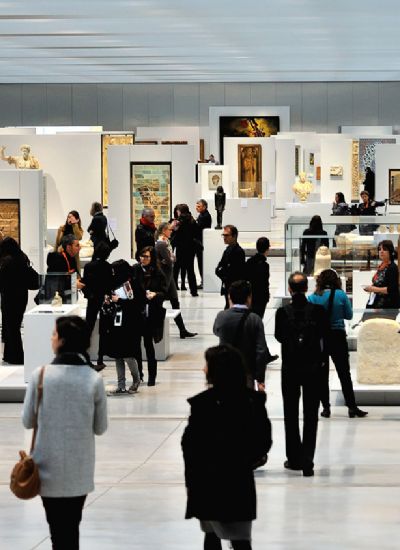A Country Apothecary, by Mary Russell Mitford (page four)
In his shop and his household he had no need either of partner or of wife: the one was excellently managed by an old rheumatic journeyman, slow in speech, and of vinegar aspect, who had been a pedagogue in his youth, and now used to limp about with his Livy in his pocket, and growl as he compounded the medicines over the bad latinity of the prescriptions; the other was equally well conducted by an equally ancient housekeeper and a cherry-cheeked niece, the orphan-daughter of his only sister, who kept every thing within doors in the bright and shining order in which he delighted.
John Hallett, notwithstanding the roughness of his aspect, was rather knick-knacky in his tastes; a great patron of small inventions, such as the improved ne-plus-ultra cork-screw, and the latest patent snuffers. He also trifled with horticulture, dabbled in tulips, was a connoisseur in pinks, and had gained a prize for polyanthuses. The garden was under the especial care of his pretty niece, Miss Susan, a grateful warm-hearted girl, who thought she never could do enough to please her good uncle, and prove her sense of his kindness. He was indeed as fond of her as if he had been her father, and as kind.
Perhaps there was nothing very extraordinary in his goodness to the gentle and cheerful little girl who kept his walks so trim and his parlour so neat, who always met him with a smile, and who (last and strongest tie to a generous mind) was wholly dependent on him--had no friend on earth but himself. There was nothing very uncommon in that. But John Hallett was kind to every one, even where the sturdy old English prejudices, which he cherished as virtues, might seem most likely to counteract his gentler feelings.
One instance of his benevolence and his delicacy shall conclude this sketch.
Several years ago an old French emigré came to reside at Hazelby. He lodged at Matthew Wise's, of whose twofold shop for cakes and novels I have before made honourable mention, in the low three-cornered room, with a closet behind it, which Matthew had the impudence to call his first floor. Little was known of him but that he was a thin, pale, foreign-looking gentleman, who shrugged his shoulders in speaking, took a great deal of snuff, and made a remarkably low bow. The few persons with whom he had any communication spoke with amusement of his bad English, and with admiration of his good-humour; and it soon appeared, from a written paper placed in a conspicuous part of Matthew's shop, that he was an Abbé, and that he would do himself the honour of teaching French to any of the nobility or gentry of Hazelby who might think fit to employ him. Pupils dropt in rather slowly. The curate's daughters, and the attorney's son, and Miss Deane the milliner--but she found the language difficult, and left off, asserting that M. l'Abbé's snuff made her nervous. At last poor M. l'Abbé fell ill himself, really ill, dangerously ill, and Matthew Wise went in all haste to summon Mr. Hallett. Now Mr. Hallett had such an aversion to a Frenchman, in general, as a cat has to a dog; and was wont to erect himself into an attitude of defiance and wrath at the mere sight of the object of his antipathy. He hated and despised the whole nation, abhorred the language, and "would as lief," he assured Matthew, "have been called in to a toad." He went, however, grew interested in the case, which was difficult and complicated; exerted all his skill, and in about a month accomplished a cure.
By this time he had also become interested in his patient, whose piety, meekness, and resignation, had won upon him in an extraordinary degree. The disease was gone, but a languor and lowness remained, which Mr. Hallett soon traced to a less curable disorder, poverty: the thought of the debt to himself evidently weighed on the poor Abbé's spirits, and our good apothecary at last determined to learn French purely to liquidate his own long bill. It was the drollest thing in the world to see this pupil of fifty, whose habits were so entirely unfitted for a learner, conning his task; or to hear him conjugating the verb avoir, or blundering through the first phrases of the easy dialogues. He was a most unpromising scholar, shuffled the syllables together in a manner that would seem incredible, and stumbled at every step of the pronunciation, against which his English tongue rebelled amain. Every now and then he solaced himself with a fluent volley of execrations in his own language, which the Abbé understood well enough to return, after rather a politer fashion, in French. It was a most amusing scene. But the motive! the generous, noble motive! M. l'Abbé, after a few lessons, detected this delicate artifice, and, touched almost to tears, insisted on dismissing his pupil, who, on his side, declared that nothing should induce him to abandon his studies. At last they came to a compromise. The cherry-cheeked Margaret took her uncle's post as a learner, which she filled in a manner much more satisfactory; and the good old Frenchman not only allowed Mr. Hallett to administer gratis to his ailments, but partook of his Sunday dinner as long as he lived.




















